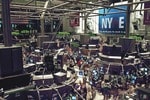
Is Celestica The Best AI Stock to Buy Now?
Technology and hardware business Celestica (NYSE:CLS) has seen massive upward…


Technology and hardware business Celestica (NYSE:CLS) has seen massive upward…

Since January 28th, software stocks in the United States have…

Over the last five days, shares of Instagram and Facebook…
Market Cap: $4.6T
P/E Ratio: 65x
Market Cap: $3.9T
P/E Ratio: 35x
Market Cap: $3.8T
P/E Ratio: 29x
RingCentral, Inc. [RNG] is up 34.37% over the past day.
JFrog Ltd. [FROG] is down 24.98% over the past day.
Sensei Biotherapeutics, Inc. [SNSE] is up 23.81% over the past day.